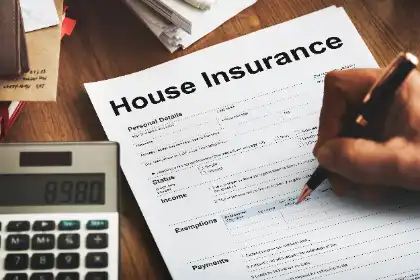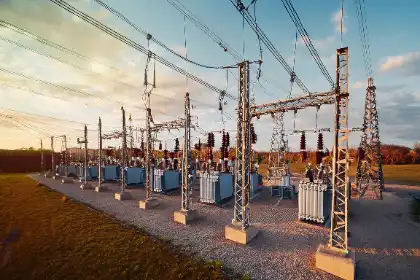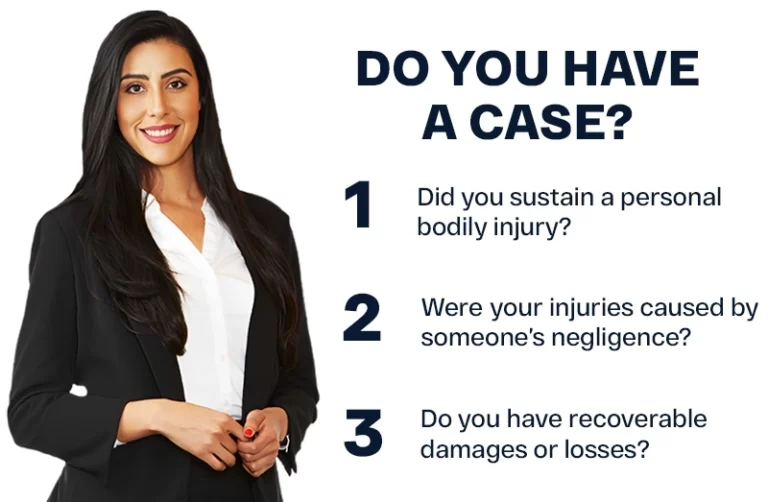Table of Contents
The 2025 Palisades Fire and the Eaton Canyon Fire in California serve as a reminder of the devastating impact of wildfires. These fires scorched thousands of acres, destroyed countless homes, and left entire communities struggling to rebuild. As wildfires continue to intensify due to environmental and human-related factors, the financial costs are also mounting.
Homeowners, renters, and business owners typically rely on their insurance policies to cover property damage, personal losses, and expenses related to injuries. However, in some cases, victims may need to pursue compensation from the parties responsible for causing or contributing to the fire. Liability may rest with negligent individuals, government agencies, utility companies, or other parties that are potentially responsible for the incident. Compensation may also be available from other sources, such as government assistance programs.
Who Is Responsible For Paying For Wildfire Damage And Injuries?
When a wildfire spreads near populated areas, it can cause catastrophic damage to the environment, properties, wildlife, and human life. Tens of thousands of acres were burned due to wildfires that set Los Angeles ablaze at the beginning of January 2025. These fires, including the Eaton Fire in Altadena and the Malibu Fire, resulted in burned-down homes and businesses and countless families with nowhere else to go. If you have been affected by wildfires, you might be wondering if you can seek compensation or whether any party may bear legal responsibility for the losses you experienced.
Here are some of the potential sources of compensation for your wildfire damages and injuries:
Insurance Companies
Different types of insurance can help individuals and property owners recover from wildfire losses, including the following:
Homeowners Insurance
Homeowners insurance typically covers the cost of rebuilding or repairing a home and its associated structures, such as garages, decks, sheds, or fences, when damaged by a wildfire or other covered disasters. This coverage also extends to the repair or replacement of personal belongings inside the home, including appliances, electronics, clothing, furniture, and other valuable items.
If the wildfire renders the home uninhabitable, homeowners’ insurance often includes Additional Living Expenses (ALE) coverage. This benefit helps cover the cost of temporary accommodations, meals, and other essential living expenses incurred while the home is being repaired or rebuilt.
Renters Insurance
Landlords’ insurance policies typically cover the physical structure of their rental properties, but not the tenants’ possessions. Renters insurance provides critical protection by covering the cost of replacing or repairing personal items, such as clothing, electronics, furniture, and other valuables, that are damaged or destroyed in a fire, including wildfires. Coverage may also include ALE, which can provide renters with financial support while they recover and find a new place to live.
Landlord Insurance
While landlords are not legally required to have dwelling fire insurance, it is strongly recommended to protect rental properties from fire-related damage, including wildfires and other disasters, as well as potential risks. This type of insurance covers the cost of repairing or rebuilding the physical structure of the rental property, including features such as roofs, walls, and built-in systems.
Landlord insurance also provides reimbursement for lost rental income if the property becomes uninhabitable due to fire damage or other covered events. This coverage helps landlords maintain financial stability while the property is being repaired or rebuilt. Some landlord insurance policies may include liability coverage, which protects property owners from legal claims or lawsuits if a tenant or visitor is injured due to wildfire-related damage on the property.
Condo Insurance
HO-6 policies are homeowners’ insurance policies for condominium and cooperative owners. These policies provide coverage specifically for the portions of the property owned by the individual condo owner, typically the interior of the unit, including walls, floors, ceilings, fixtures, and personal belongings.
The condominium association’s master policy typically covers the building’s exterior and shared common areas, such as hallways, roofs, and lobbies. However, the extent of this coverage depends on the terms of the association’s policy, which may vary between “all-in” and “bare walls” coverage. The former includes insurance for the building’s exterior, shared common areas, and certain interior features of individual units, such as fixtures, flooring, and built-in appliances. The former only covers the building’s structure and shared spaces, leaving unit owners responsible for everything inside their unit.
An HO-6 policy also often includes loss assessment coverage, which helps condo owners pay their share of repair costs for damage to common areas caused by disasters like wildfires. Additionally, the policy may provide liability protection to safeguard the owner against lawsuits for injuries or damage occurring within the unit.
Health Insurance
Personal health insurance can help cover the medical costs associated with wildfire-related injuries, including treatment for burns, respiratory issues, or other health complications. However, it is important to note that health insurance may not cover all expenses. In cases where the wildfire is caused by a third party, such as an individual who intentionally or negligently started the fire, health insurance may initially cover medical expenses. However, the insurer may seek reimbursement from the responsible party or their liability insurance.
Workers’ Compensation
Workers’ compensation typically covers injuries sustained by employees while performing their job duties, including wildfire-related injuries. For example, firefighters, first responders, utility workers, and others who are required to work in wildfire-affected areas are generally eligible for workers’ compensation benefits if they are injured while performing their duties within the scope of their employment.
Workers’ compensation does not cover property damage, as it is designed to address injuries and health issues, not property damage. For property damage resulting from wildfires, victims must rely on other sources of compensation.
Government Assistance Programs
Wildfire victims may be eligible for federal disaster aid through the Federal Emergency Management Agency (FEMA) to help them recover from the devastating effects of catastrophic fires. FEMA assistance can cover a range of wildfire-related expenses, including temporary housing, minor home repairs, and replacement of essential personal belongings. This aid is particularly valuable for individuals who are uninsured or whose insurance policies do not fully cover their basic needs.
Victims may seek compensation directly from parties whose negligence or misconduct contributed to the fire. Potentially liable parties include utility companies, individuals who started the fire, or government agencies that failed to implement proper fire prevention measures.
The process typically begins with a thorough investigation into the cause of the fire and the identification of responsible parties. Victims can work with experienced wildfire injury attorneys to gather evidence, such as official fire reports, maintenance records, eyewitness accounts, and expert analysis. These attorneys can assess the damages, including property destruction, medical bills, lost wages, and emotional distress, to estimate the amount they can pursue on behalf of the victims.
A claim is then filed with the liable party’s insurance provider. This may result in a settlement through negotiations or an award in a lawsuit.
Who Can Be Held Liable For Wildfire Damages And Injuries?
A wildfire injury claim can be brought against various parties depending on the circumstances of the incident. Liability often hinges on whether their actions or inaction contributed to the fire’s ignition or spread. Below are examples of parties who may be held accountable:
Utility Companies
In California, under the principle of inverse condemnation, publicly-owned utilities (POUs) and investor-owned utilities (IOUs) are treated as public entities. They are held strictly liable for damages related to wildfires. They are responsible for compensating affected property owners, even if they were not negligent, as long as their equipment or operations contributed to the fire.
Arsonists Or Accidental Fire Starters
Wildfires can be caused by individuals, either through intentional acts of arson or unintentional, negligent behavior. In both cases, those responsible may be held liable for the resulting damages and injuries.
Product Manufacturers
Manufacturers may be held responsible for wildfire damages if their products or equipment cause or contribute to the wildfire due to defects, unsafe design, or inadequate warnings. The victim can file a product liability claim to pursue damages.
Government Agencies
Government agencies can be held responsible for wildfire damages in certain circumstances where negligence or misconduct is proven. For instance, if a wildfire originates from poorly maintained public lands or inadequate fire prevention measures, the agency responsible for those areas or resources may be liable. Additionally, failure to respond appropriately to wildfire threats, such as neglecting to issue timely evacuation warnings or enforce fire safety regulations, can also lead to government accountability.
Understanding Wildfire Damage And Injury Costs
Wildfires cause widespread damage, including the destruction of property, severe environmental harm, and catastrophic injuries. Survivors of wildfires often face long-term health challenges and overwhelming medical expenses as a result of these fire-related injuries:
- Burn injuries
- Deadly infections
- Bone fractures
- Blast wounds
- Breathing issues
- Persistent discomfort
- Facial deformities
- Eye injuries
- Amputations
If you have suffered damages due to a wildfire, consulting with experienced wildfire lawyers is essential. They can assess the extent of your losses and help you pursue financial compensation to support your recovery. Here are the different types of damages you may seek in your claim:
- Economic Damages — Economic damages account for measurable financial losses directly resulting from a wildfire. They include:
- Costs to rebuild or repair homes destroyed or damaged by the fire.
- Expenses for restoring or replacing additional structures on the property, like outbuildings, fences, and garages.
- Costs associated with restoring or replacing trees, plants, and landscaping.
- Replacement of destroyed personal belongings, such as furniture, appliances, and electronics.
- Costs to repair or replace damaged cars, motorcycles, bicycles, or other vehicles.
- Expenses for temporary housing.
- Loss of income during recovery.
- Losses related to damaged commercial property and income interruptions caused by the wildfire.
- Losses involving agricultural structures, equipment, and crops.
- Non-Economic Damages — Non-economic damages compensate for intangible losses that are more difficult to quantify but no less significant. Here are some examples:
- Pain and suffering
- Diminished quality of life
- Emotional distress
- Post-wildfire trauma
When a wildfire results in the tragic loss of life, surviving family members may pursue a wrongful death claim to seek justice. They may pursue a settlement to recover wrongful death damages, including funeral or burial costs, loss of financial support, loss of companionship, and other losses.
To identify which monetary damages may be applicable in your case, contact our wildfire lawyers for assistance. They can analyze your unique circumstances, calculate the potential damages, and help you seek compensation based on that amount.
Environmental And Economic Impact
Beyond the personal toll on individuals and families, wildfires have far-reaching consequences for the environment and the economy.
Since 2000, the United States has experienced an average of 70,600 wildfires annually, leading to billions of dollars in government spending to protect natural resources and restore ecosystems. The environmental consequences of wildfires include:
- Air pollution
- Water pollution
- Endangered wildlife
- Damaged vegetation
Wildfires impose staggering financial costs, often reaching billions of dollars. AccuWeather Inc., an independent weather data company, estimates the damages from wildfires in California in 2025 could be at least $250 billion. These losses stem from the perceived extent of property damage and the interruption of businesses and livelihoods.
Filing A Wildfire Claim
If a wildfire damages or destroys your property or if you sustain wildfire-related injuries, you may be able to file a claim. Here are some important steps to take when filing your claim:
- Contact Your Insurance Company Immediately — Notify your insurance company to initiate the claims process. Ask about required documents and filing deadlines. Many insurers offer mobile apps or online platforms to streamline the claims submission process.
- Keep a Detailed Record — Take photos and videos of all damaged property, provided it is safe to do so. Save receipts for out-of-pocket expenses, such as short-term housing and emergency supplies. Avoid disposing of damaged items until your insurance adjuster has inspected them.
- Submit All Required Documentation — Provide your insurance company with all necessary evidence, including photos, receipts, incident reports, and an inventory of damaged items. Be thorough and organized to avoid delays in processing your claim.
- Consult Wildfire Attorneys — Wildfire lawyers will help you gather evidence to build a case, negotiate with insurance companies, advocate for your rights, and pursue a fair settlement.
Role Of A Personal Injury Lawyer In Wildfire Claims
If you or a loved one has sustained losses in a wildfire, you might be wondering, “Do I need a personal injury lawyer?” Wildfire lawyers can help you navigate the complex claims process and assist you in seeking compensation. Here’s how they can help you with your claim:
- Wildfire attorneys collaborate with investigators and authorities to gather evidence demonstrating that someone’s reckless or negligent actions contributed to the disaster.
- Your lawyer will build a well-supported case by gathering critical evidence, such as fire reports, maintenance records, eyewitness accounts, and expert testimony, to demonstrate liability.
- They will calculate the extent of your losses, including property damage, medical expenses, and emotional trauma.
- Skilled attorneys will seek a settlement that addresses your losses, prioritizing your financial and emotional recovery.
- If the responsible party refuses to offer an adequate settlement, your lawyer can consider taking the case to trial if it is a viable option for you.
Frequently Asked Questions
Does Insurance Cover The Wildfire In California?
Insurance can cover wildfire damage in California, but the extent of coverage depends on the type of policy you have. Most standard homeowners’ insurance policies include coverage for wildfire-related damages, such as repairing or rebuilding your home, replacing personal belongings, and covering additional living expenses (ALE) if the house becomes uninhabitable.
Renters insurance typically covers personal belongings and temporary housing costs, while landlord insurance protects rental property structures and provides liability coverage. Additionally, business insurance may cover property damage, inventory loss, and business interruption due to wildfires.
In California, the FAIR Plan (Fair Access to Insurance Requirements) is a state-mandated insurance program that provides basic property insurance. It is designed for homeowners and businesses in areas where traditional insurance coverage is unavailable due to high wildfire risk or other hazards. This program provides individuals living in fire-prone regions with access to essential fire insurance coverage, even when private insurers refuse to offer such coverage.
How Much Does Insurance Pay For Fire Damage?
The amount insurance pays for fire damage depends on your policy’s coverage limits, deductibles, and the extent of the damage. Many homeowners’ insurance policies provide coverage for the cost to repair or rebuild your home up to the policy’s dwelling coverage limit. This limit is typically based on the estimated cost to rebuild your home, not its market value.
For personal belongings, insurance policies typically cover the replacement or repair of items, either at actual cash value (factoring in depreciation) or the cost of replacing items with new ones. Additional coverage may be available for detached structures, such as garages or fences, and for additional living expenses (ALE) if you are displaced from your home.
What Is The Cost Of Hiring A Wildfire Attorney Near Me?
Some wildfire attorneys work on a contingency fee basis. This means that their clients do not pay upfront legal fees. Instead, the attorney’s payment is a percentage of the final settlement or award that their clients may receive. You won’t owe any attorney fees if no compensation is obtained, but you may still be responsible for other case costs regardless of the result. Our legal team can discuss our fee arrangement or address cost-related questions during consultation.
Get Dedicated Legal Assistance From Our Wildfire Lawyers
As a wildfire victim, you already have enough to deal with. You can seek support to navigate the legal process. Schedule a free case evaluation with skilled and experienced wildfire lawyers who are dedicated to helping you rebuild. This way, you’ll gain access to the knowledge and resources you need for your case without spending upfront attorney’s fees.
As a personal injury law firm in California, Arash Law can represent clients, including those affected by wildfire damage, throughout the state. Call us at (888) 488-1391 or fill out our contact form to schedule a free, no-obligation initial consultation.
We also handle a variety of other personal injury cases. Our car accident lawyers have helped numerous victims seek compensation for injuries due to bicycle collisions, motorcycle crashes, and other motor vehicle incidents.
We extend our services to those affected by the devastating wildfires across California. Our firm is dedicated to providing legal assistance to communities severely impacted by the Palisades wildfire in Pacific Palisades, Malibu, and Topanga. We are also here to support victims of the Eaton Canyon Fire in Altadena and Pasadena.











